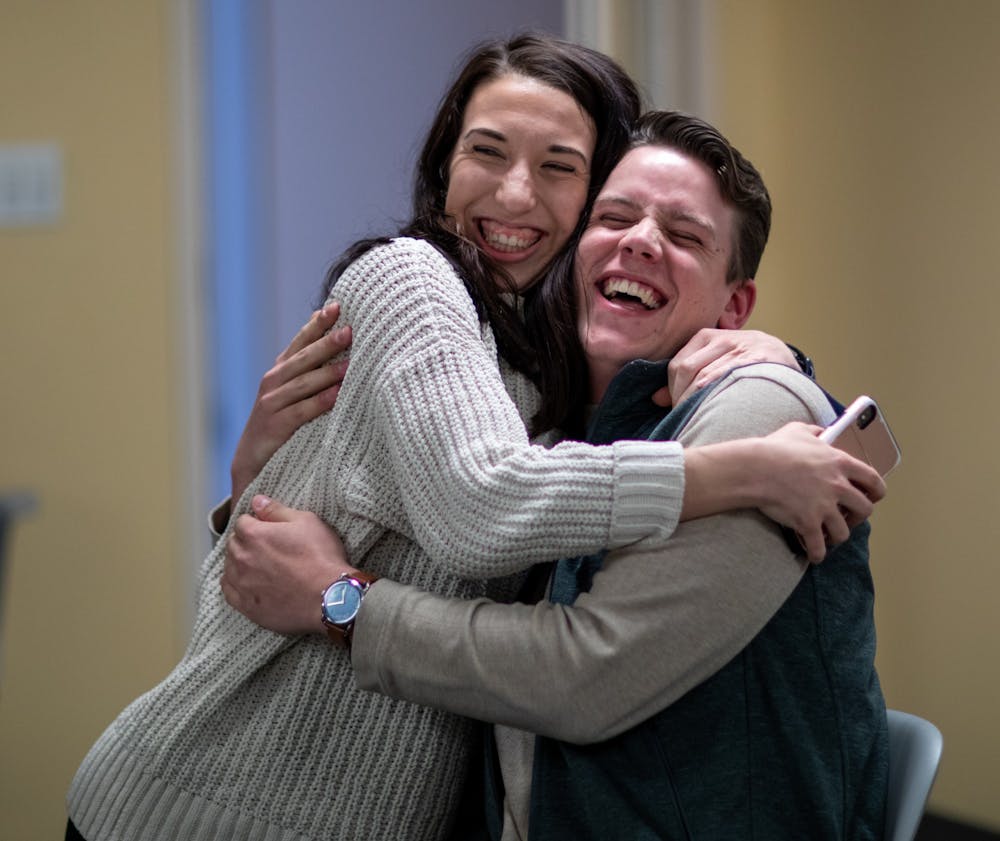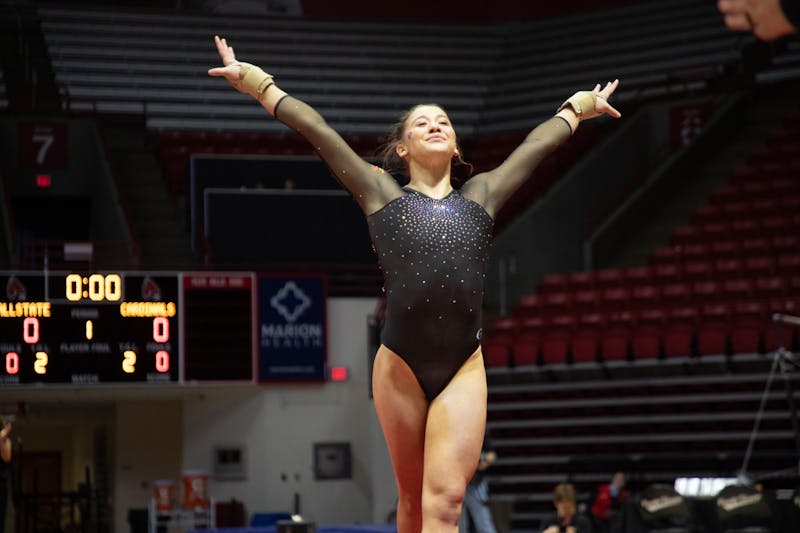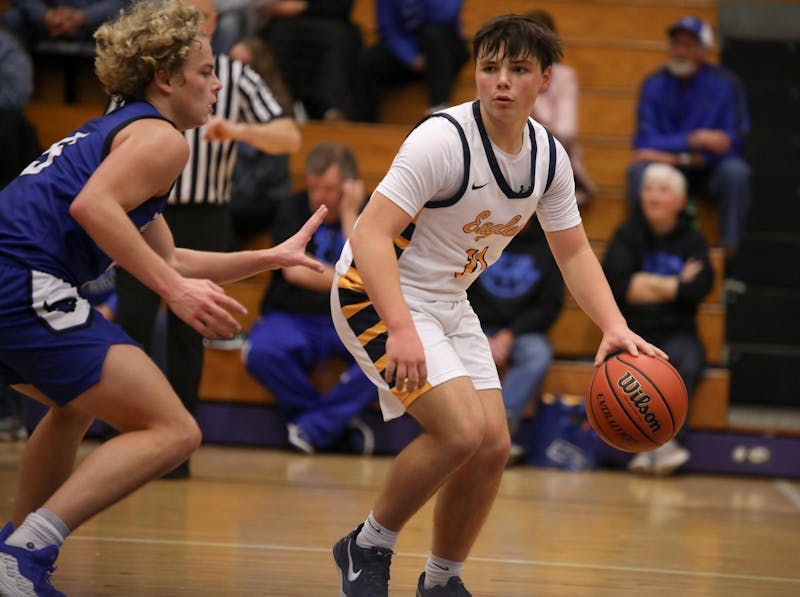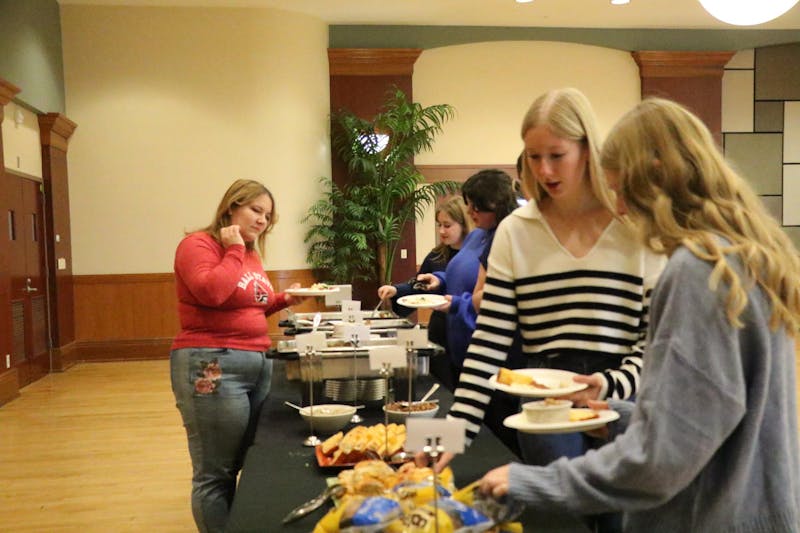Conner Sanburn, president-elect from the Bold slate, sat in Digital Corps’ conference room Tuesday in the Ball Communication Building, surrounded by empty white boards.
With the slate’s campaign manager Kyleigh Cramer and the treasurer candidate Amanda Mustaklem, they eagerly awaited election results while listening to Elton John songs and discussing the events of the day prior to the watch party.
A little after 5 p.m., Cramer finally received the long-awaited call revealing Bold was the winner of the 2020 Student Government Association election.
Bold won the runoff election with 53.1 percent of the vote — 12 percent more than their competitor, Alliance.
After hearing the election results, Sanburn said he was “still jittering” over the news that he had won after three weeks of campaigning.
To prepare for his upcoming role as president, Sanburn said he will be meeting with current SGA president Aiden Medellin after spring break to go through necessary documents for the transition to the newly elected slate.
“I want to read a lot, and I want to watch a lot about how to be a good leader,” Sanburn said. “I feel that I'm a good leader already, but how can I be better and serve all students on our campus, not just students who some might perceive I represent?”
Looking ahead, one project Sanburn said he would like to work on is creating a partnership with the counseling center at Ball State to form some type of curriculum that could be used to aid students throughout the semester.
Bold will be inaugurated as the new slate at the SGA meeting April 15.
Reflecting on the loss:
While he was stressed out prior to the results being announced, Aric Fulton, presidential candidate of Alliance, said he felt good about winning 41 percent of the student vote.
“I’m just so f****** proud of us,” Fulton said. “I’m so proud of our hard work.”
Alliance, he said, went into the election not knowing what to expect, what it was going to take and minimal conversations with people familiar with the elections process. However, Fulton said he and his slate members “brought a new perspective” to SGA.
Avery Pollard, the slate’s secretary candidate, said she is proud that her team made it this far in the elections.
“[I’m] a little disappointed that we didn’t win because I think we had a lot of people supporting us and a lot of people really vibing with what we were saying and really hoping that we would win,” Pollard said.
Nevertheless, she said the election has been “an amazing journey.”
“I’m not involved in SGA. I’m not necessarily someone that cared about SGA before, but I think now, I definitely care about SGA,” Pollard said.
While James Schwer, the treasurer candidate for Alliance, is already an SGA senator, Pollard and Malachi Jones, the slate’s vice presidential candidate, said they were interested in running to become SGA senators.
Fulton said he needs some time to process his experience before considering being involved in SGA as a senator.
“I’m definitely still very passionate about advocating for students, ensuring that students’ voices are heard and holding SGA accountable,” he said. “I feel like no one has been holding SGA accountable when it comes to being transparent with information, giving students the opportunity to voice their concerns, and also putting SGA out in the Ball State community.”
Future SGA elections:
Thomas May, SGA elections commissioner, said the elections board considers the runoff election a success when compared with the first round of the elections.
This runoff election had a voter turnout of 1,853 students — 108 fewer votes than this year’s first round of voting, but 229 more votes than 2019's second round of voting.
“I think having a higher turnout than last year's election also shows that the efforts we put into pushing out turnout were beneficial to the population,” May said.
While not easier, he said this year’s elections were better compared to the 2019 elections which had multiple campaign violations. May said this year’s election had no campaign violations by the slates.
For future elections, he said the elections board is considering clarifying two things related to the elections code — the times and locations for election campaigning and adding language about what happens if the no-confidence vote wins or prevents any slate from winning a majority.
May said he and Matt Hinkleman, elections board sheriff, will be working on legislation to introduce ranked-choice voting in future elections to help eliminate the need for a runoff election.
Contact Charles Melton with comments at cwmelton@bsu.edu or on Twitter @Cmelton144. Contact Rohith Rao with comments at rprao@bsu.edu or on Twitter @RaoReports.





The Daily News welcomes thoughtful discussion on all of our stories, but please keep comments civil and on-topic. Read our full guidelines here.